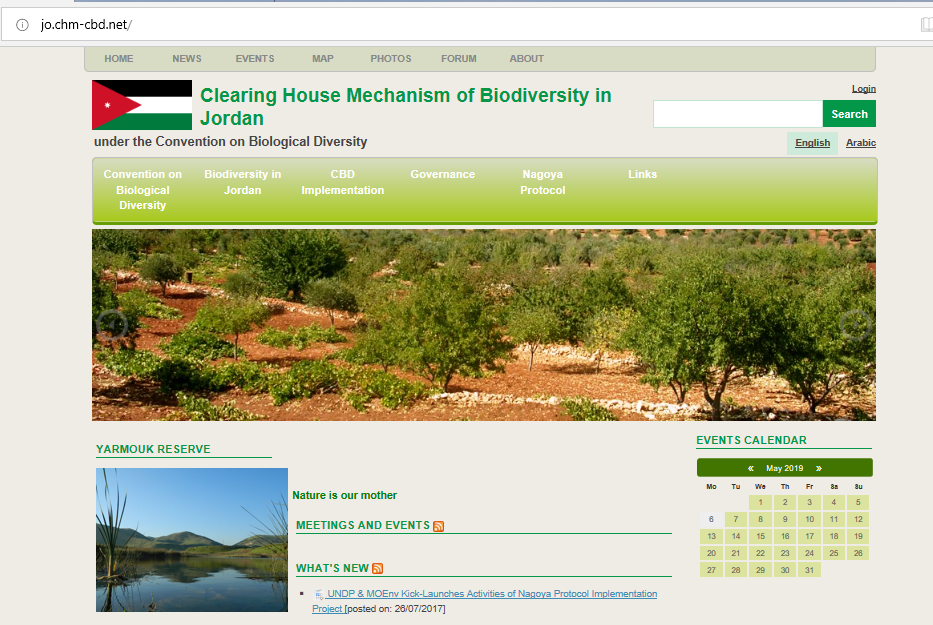Jordan is a Party to the UN’s Convention on Biological Diversity (CBD), having signed the Convention in 1992, and ratified it on 12 November 1993. As Party to the Convention, Jordan is required to implement the CBD’s articles as well as the relevant decisions of the Conference of the Parties (COP). During COP10, which took place in October 2010 in Nagoya, Japan, Parties adopted the mission, goals and objectives of the CBD Clearing House Mechanism (CHM) for the period 2011- 2020. The mission of CHM for the period 2011-2020 is to contribute significantly to the implementation of the CBD and its Strategic Plan for the 2011-2020 period, through effective information services and other appropriate measures to promote and facilitate scientific and technical cooperation, knowledge sharing and information exchange, and to establish a fully operational network of CBD Parties and other partners.
The Jordan Clearing House Mechanism (JO-CHM) is the country’s contribution to the global CHM and was developed from 2015-2018 with the support of the Sustainable Use of Ecosystem Services (EKF-ESS) project in Jordan in the frame of its results area “National Policy’”. This area’s objectives include the development of the national biodiversity policy with guidelines for the assessment and valuation of ecosystem services, support for national initiatives, bylaws and strategies related to ecosystem services, and the establishment of a National Information System.
The EKF-ESS project, commissioned by the German Federal Ministry for Economic Cooperation and Development (BMZ), supported its political counterpart and the national focal point of the CBD – the Ministry of Environment of Jordan – to develop and maintain the JO-CHM as the official National Information System on Biodiversity and Ecosystem Services, and organized a series of trainings for the CHM focal points from different institutions in Jordan on the process of uploading and management of the shared information on the portal.
JO-CHM aims at promoting the sustainable management of biodiversity and ecosystems in Jordan, by providing access to information on the CBD, on biodiversity and ecosystem services in Jordan, national initiatives for the implementation of the CBD, governance of biodiversity and ecosystem services, management plans of protected areas, links to relevant databases and sources of expertise held by Jordanian institutions. The JO-CHM is therefore a key platform for anyone who wants to know more about biodiversity and ecosystem services knowledge of Jordan.
Furthermore, the JO-CHM is closely linked to the ESP National Network for Jordan, which is part of the ESP Regional Chapter for the MENA region. Jordanian governmental and non-governmental institutions, academics and researchers, decision-makers and conservationists engaged in the establishment and enrichment of the CHM-JO are contributing as well to the Jordanian ESP NN. This interaction of closely related thematic platforms and networks is a successful example for other countries of the MENA region.
For more information: jo.chm-cbd.net
Ahmad Abbaas and Oliver Schlein

